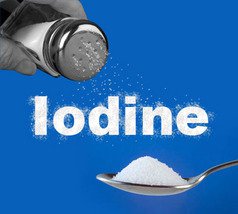Sponsored by Hormonal Health & Wellness Center
Written by Terri Suresh, RN, MSN, ACNP
Abrcurrent hormone patient of mine, after experiencing life-changing results frombrher therapy with us, inquired about her 18-year-old son and some symptoms hebrwas having. She described everysymptom of imbalanced hormones in her son: brain fog, inability to focus, extremebrfatigue, depression, ADD, low libido and a host of others. Naturally, I had himbrcome in for testing as we are seeing more and more young people with hormonebrimbalances (thank you, hormones in food, plastics, processed foods, etc.). Hisbrtestosterone and other hormones were perfect; however, he did show two verybrimportant nutrient deficiencies: iodine and vitamin D3. We treated him withbrsupplementation, and after two months not only had all of his symptomsbrresolved, but he had also grown a full inch in height. He has gone off of hisbrADD and anti-depression medications and is a straight-A student his first yearbrin college.
Iodinebrdeficiency is occurring at an epidemic rate across the United States. Thebrconsequences of iodine deficiency are severe: mental retardation, lowered IQ, ADD/ADHD,brinfertility, thyroid problems and cancers of the breast, prostate, ovaries,brthyroid and uterus. Approximately 1.5 billion people — about one-third of thebrearth's population — live in an area of iodine deficiency as defined by thebrWorld Health Organization (WHO). The WHO ascertains: Iodine deficiency disorderbris the most common preventable form of mental retardation known. There is nobrdoubt that this deficiency is responsible (at least in part) for the epidemicbrof cancers of the breast and prostate as well as thyroid disorders. Clinicalbrexperience has clearly shown that it is impossible to treat these disorders asbrwell as other chronic illnesses such as autoimmune diseases without ensuringbradequate iodine intake.
Unfortunately, a lot of misinformation exists about iodine. People are afraidbrto use iodine because of unsubstantiated rumors about this nutrient. For morebrthan 100 years, iodine has been known as the element that is necessary forbrthyroid hormone production. However, it is rare to see any further mention ofbriodine's other effects. Iodine is found in each of the trillions of cells in thebrbody. Without adequate iodine levels, life itself is not possible.
Iodine is not only necessary for the production of the thyroid hormone, but itbris also responsible for the production and receptor activity of all of the body'sbrother hormones. Adequate iodine levels are necessary for proper immune systembrfunction. Iodine contains potent antibacterial, anti-parasitic, antiviral,branti-oxidant and anticancer properties.
Breast Cancer and Iodine
Decadesbrbefore the advent of chemotherapy drugs, breast tumors were treated and shrunkbrwith iodine therapy. Recently, researchers have reported that the preferredbriodine/iodide combination (Lugol's iodine) has been shown to alter genebrexpression in estrogen-responsive breast cancer cells and lower several estrogenbrresponsive genes. Iodine depletion in rats has shown for decades to alter breastbrtissue towards pre-cancerous cells; moreover, when iodine restriction was lifted,brnormal breast tissue structure returned. The ovaries concentrate large amountsbrof iodine, and deficiency increases ovarian production of estrogen. That,brcoupled with iodine deficiency, increases estrogen receptor activity in thebrbreast — a “double whammy” for the majority of American women. Iodine is alsobrhighly effective for treating fibrocystic breasts (a pre-cancerous state) andbrovarian cysts. We have reversed several cases of fibrocystic breast disease inbrour practice with iodine therapy alone. Remember this point: Fibrocystic breastbrdisease is not an ibuprofenbrdeficiency state. (Ibuprofen is the mainstay of treatment for this condition.)
Sincebriodine was removed from baked goods in the 1960-1970s, breast cancer rates havebrraised from one in 25 to one in seven. Mounds of research evidence show abrdirect correlation between iodine deficiencies and all cancers, breast cancersbrtopping the list.
How Much Iodine Do You Need?
The best way to ascertainbrhow much iodine you need to take is to figure out the body's iodine status.brIodine levels can be checked in the blood or urine. Most adults will do wellbrtaking iodine/iodide combination in the range of 25-50 mg/day. Children needbrlower doses and can be dosed appropriately based on their size.
And ifbryou think iodized table salt will get you enough, think again. The thyroidbrgland alone needs three mg of iodine per day; moreover, about three weeks afterbropening iodized table salt, the iodine has evaporated from it! Not only are youbrconsuming a useless chemical — not real salt — you aren't even getting thebriodine.
Abrfinal note: Always consult with an iodine-literate practitioner to ascertainbryour specific supplementation needs. When undertaking an iodine supplementationbrprogram, it is important to use iodine from a reputable company and abrcombination of iodine and iodide. Furthermore, the best results are found bybrusing iodine as part of a comprehensive holistic regimen that includesbrbalancing vitamins, minerals and all hormones, naturally.
Hormonal Health & Wellness CentersbrNurse Practitioners and Staff focus their care on the entire patient with abrholistic approach, collaborating with the patients in achieving their optimalbrlevel of wellness. Visit their locationsbrin Southlake or Rockwall.

